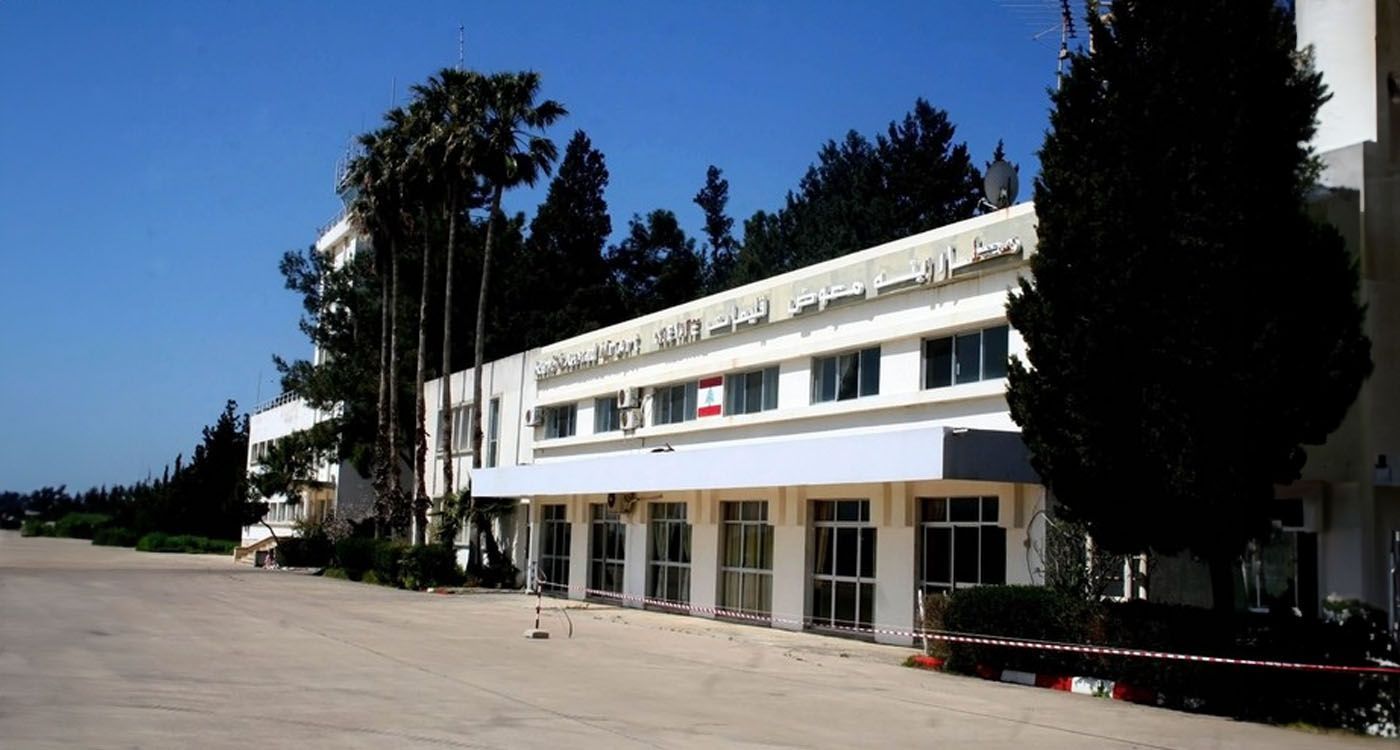
“The Qlayaat René Mouawad Airport could be opened for air traffic in emergencies to reduce the risks faced by crews and passengers at Beirut Rafic Hariri International Airport,” stated Sajih Attieh, chairman of the Parliamentary Committee on Public Works and Transport, in an interview with This is Beirut.
The President of the Private Pilots Association in Lebanon, Mazen Sammak, supports this viewpoint, highlighting that the airport could be rapidly utilized for commercial flights if necessary, without the need for significant renovations at this time.
In a context of urgency and necessity, this option becomes vital, especially as MEA, the sole airline operating from Beirut Rafic Hariri International Airport, continues to take off and land while airstrikes occur less than a kilometer from the runway.
Two Airports Rather Than One
Even a small country like Lebanon can significantly benefit from having multiple airports for strategic, economic, and logistical reasons. For example, Cyprus, which spans approximately 9,251 square kilometers — slightly smaller than Lebanon — has six airports, including two dedicated to civil aviation: Larnaca and Paphos. Similarly, Corsica, covering around 8,722 square kilometers, features four main airports: Ajaccio Napoleon Bonaparte, Bastia-Poretta, Calvi Sainte-Catherine, and Figari Sud-Corse. These airports efficiently accommodate both national and international flights, making travel to and from the island seamless.
A Civil Airport
Located in the Akkar region of northern Lebanon, just seven kilometers from the Syrian border, 26 kilometers from Tripoli, and 105 kilometers from Beirut, Qlayaat Airport was constructed in 1934, predating the capital's airport. Experts consider it superior to Beirut’s airport due to its reduced vulnerability to sandstorms.
From 1988 to 1990, Qlayaat Airport served as a domestic civil airport, utilized by Middle East Airlines (MEA) under the leadership of former Prime Minister Rachid Karami. This arrangement arose from insecurity and frequent road closures linking Beirut to the north during the Civil War. However, in 1966, the Lebanese Army reclaimed the airport from the Iraqi Petroleum Company (IPC), which had been operating it, and repurposed it as a military base.
Acceptable Infrastructure
According to Mohammad Chamseddine, an economist at Information International, the 3,000-meter runway at Qlayaat Airport is suitable for limited air traffic. “A modest investment would be enough to renovate the runway, which only has minor cracks and patches of grass,” he notes. However, for regular air traffic, a second runway would be required. Fortunately, expropriation costs would be manageable, as land prices in Qlayaat are lower than those in Beirut. Chamseddine estimates that expansion and modernization could cost between $200 and $250 million, with a project timeline of approximately 3 years.
Akkar MP Sajih Attieh offers a slightly different perspective on the rehabilitation of Qlayaat Airport. He explains that several studies conducted by the private sector on this issue are currently sitting idle in the drawers of the Council for Development and Reconstruction (CDR). The estimated renovation costs could range from $50 to $120 million, depending on the intended role of the airport — whether for cargo transport, passenger flights, or other services. The projected timeline for these works is between one and two years.
Political and Technical Obstacles
It may be tempting to view the reopening of Qlayaat Airport as primarily a political decision under the jurisdiction of Caretaker Prime Minister Najib Mikati’s government. However, Chamseddine raises a technical concern: due to wind patterns in Qlayaat, larger aircraft may need to navigate through Syrian airspace to land safely under optimal conditions. The key question is whether the Lebanese and Syrian governments can reach an agreement on this issue. Additionally, Chamseddine points out that the United States, which has criticized Hezbollah's use of Beirut Rafic Hariri International Airport, might have reservations about the opening of Qlayaat Airport, fearing it could benefit Syria and weaken the impact of sanctions against the country.
Qlayaat Airport: A call for Immediate Reopening
In the current context of Lebanon, it is essential to address risk distribution and national security concerns, particularly regarding food security and the supply of petroleum products. The goal of Qlayaat Airport will not be to compete with or rival Beirut Rafic Hariri International Airport, but to enhance the country’s overall aviation capabilities.

Comments